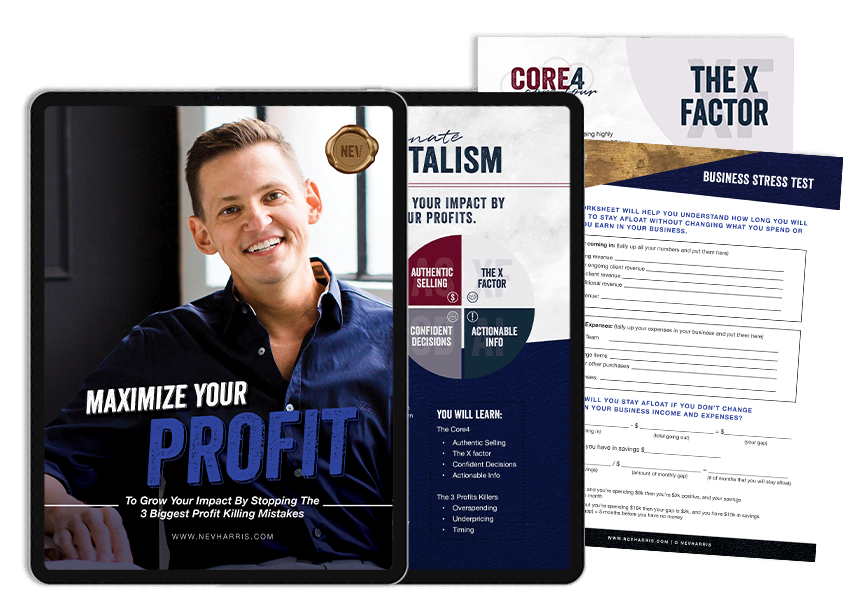6 Ways You’re Wasting Money (And How To Stop)


You need to spend money to make money. However, there’s no formula that will tell you how much you stand to earn if you spend a certain amount. It just doesn’t work that way.
Let’s say that, last month, you spent $1,500 on operating expenses and you generated $8,000 in revenue. That doesn’t mean that if you spend $3,000 next month, you’ll double your earnings to $16,000. There’s no direct correlation between the two.
If you want to grow your business, then you’re going to have to spend money on it. However, the ultimate goal is to keep costs low and steady while making more money.
This is why it’s so important for agency owners to set a budget and stick to it. The only problem is… what if the budget you’ve set is too high?
The following guide will help you identify areas of your business you should stop wasting your money on.
6 Things You Need to Stop Wasting Your Money On
In your daily life, it’s easy to spot wasteful spending. The extra bag of chips you slip into the shopping cart. The new bathing suit you bought because your favorite store was running a sale. The dessert you ordered even though you have ice cream at home. There’s nothing wrong with occasionally splurging on extras, but if you’re trying to tighten the purse strings, these indulgences don’t help.
With business expenses, this can be tricky because there are certain things you absolutely need in order to do what you do. A website. Office space. Software. Hardware. And so on.
But there’s often a fine line between spending money on what you need and wasting your money on extras that are nice-to-have but not necessary. Here are the more common things WordPress agency owners shouldn’t waste money on until it’s absolutely critical to their operation:
1. Office Space
There are a number of workspaces you could potentially run your business from:
- Your home
- The local coffee shop or library
- A co-working space
- A rented office space
What you have to consider when choosing a dedicated workspace is:
What’s the tradeoff? Will working in such an environment improve your productivity or profits? Will you make connections or meet prospective clients in that environment? And is the cost/benefit ratio in your favor or will you have to swallow the losses for a time?
While a space outside the distraction of your home might seem worth the additional cost, the more cost-effective approach might be to invest in distraction-blocking tools or workarounds at home. At least, for the time being.
2. Equipment
There’s no way to run a business without equipment. However, it’s easy to go overboard with hardware as each new shiny tool looks like something you gotta have.
But do you? Besides a fast and secure computer, large monitor, sturdy desk, comfortable chair, and good lighting, is there anything else you really need to do what you do?
Also, don’t forget to factor in how equipment affects your utilities bill, especially if they’re not energy-efficient. Those long days at the computer can realistically turn into higher energy bills for your home. And while some of that will be tax deductible, you’re still responsible for shelling out for all of it now.
3. SaaS
One of the things you’re going to hear a lot is how important it is to delegate. Your time is valuable and shouldn’t be wasted on tasks that don’t suit you, which is why SaaS is such an integral part of how WordPress businesses are run.
Again, though, it’s easy to get caught up in the excitement of trying out new software a colleague recommended or that your favorite blogger mentioned.
If it doesn’t have an actual cost tied to it, ask yourself: is it worth investing any of my time on it right now? Any time you spend experimenting with a new tool is time spent away from making money for your business.
If it does have an actual cost tied to it, ask yourself: is this functionality absolutely necessary for my business to run? Does it save me time? Or money? If there isn’t a clear reason to have it, or you’re on a plan that’s beyond what you actually need, cut back.
4. Hiring
SaaS is great for offloading menial and ill-fitting tasks to. Depending on which direction your business goes, you may find a need for more specialized and human assistance, too.
There are a lot of benefits to hiring people to work for your WordPress business. You can expand your service offering, spend more time on tasks you enjoy, and eventually grow your company to a size where it can be sold.
But it costs money to hire employees — and not just for salaries either. You have to cover taxes, insurance, time off, as well as any office space, resources, and training you provide them with.
The best way to get around these exorbitant costs before you’re ready for them is to outsource work to contractors. It’s a more cost-effective way to bring new people into your company while also getting to try out different types of talent before you’re in a position to hire.
5. Marketing
This is an area where you have to spend time and money in order to see results. Just make sure that where you’re spending it is worth it.
For instance, do you even have an email list yet? If not, don’t waste your money on expensive email management or segmentation software until you’ve started acquiring leads.
And what about social media? Are you paying for ads on platforms where your audience doesn’t hang out? If not, use organic social postings to test the relevancy of various platforms first.
If you’re not seeing a return on your marketing investment, there’s no sense trying to put more money towards the things that aren’t working. Instead, focus on that which you can control and which provides you with results. Things like SEO, content generation, and backlink building are a good place to start.
6. Conferences
There are loads of professional conferences like WordCamp, local Meetups, and other networking events that take place throughout the year. Spend enough time working in isolation or with your nose to the grindstone for months on end and those events are going to look mighty attractive.
However, before you plop your credit card down for one of these events, consider what the tradeoff is first. Is it just a chance to network and meet others who do what you do? Will you potentially find new clients? Is there something you’ll learn that will change your business for the better?
Local and virtual events that don’t require much of a time or money commitment are a good investment early on. However, the bigger conferences that require you to pay for expensive travel, lodging, and tickets to attend? Well, those might not be worth what you get out of them.
Wrap-Up
As you can see from the list above, it’s tricky with business spending. You know that you need all of these things in order to run your business well, but it’s easy to overspend on them if you’re not paying close attention.
Just remember that all of this is measurable.
List out everything you’re currently paying for. Then, look at the list above and ask yourself: am I spending too much in any of these areas? If so, adjust them now and stop carrying the burden of unnecessarily high costs.
And when purchasing in the future, use the Shiny object vs Need Tool template to help you make a more informed decision.


